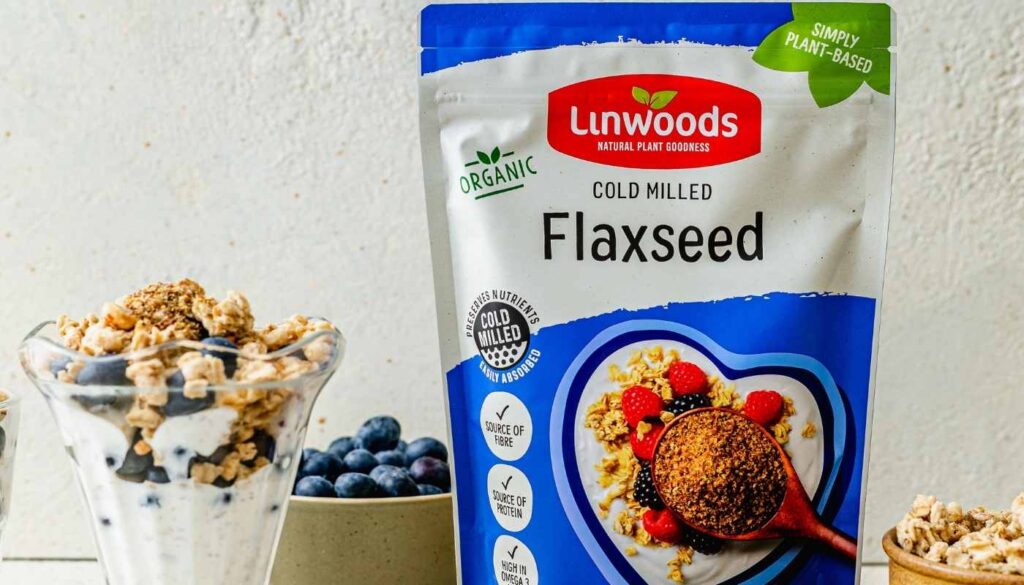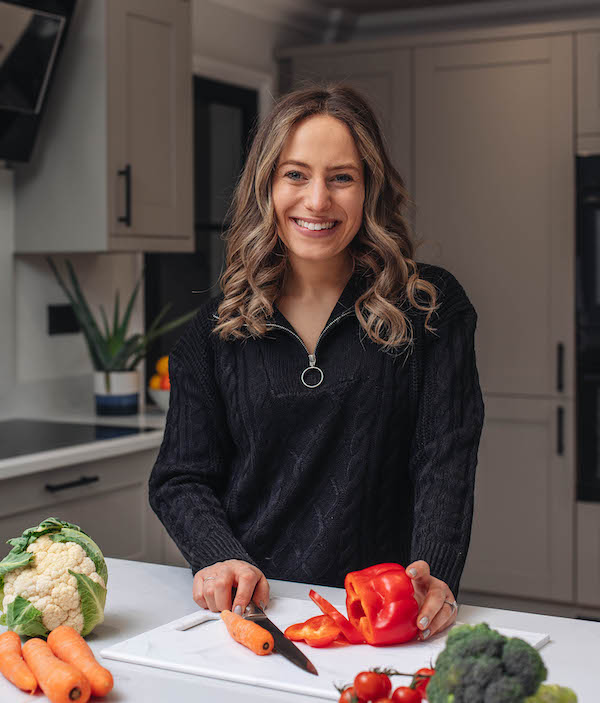AD This article is sponsored
Irritable Bowel Syndrome (IBS) is a function disorder of the gut and is thought to be a dysregulation between the gut and the brain. The symptoms of IBS are often an amplified response to changes in our hormones, certain foods, drinks and even our medications.
Common symptoms include: bloating, flatulence, Diarrhoea , constipation and indigestion. Diagnosing oneself with IBS has become all too common however, so if you suspect you may have IBS it’s important to rule out other underlying causes of your gut symptoms which could be more serious. Additional symptoms to watch out for include: unintentional weight loss, blood in stools, low iron levels, fatigue and regular illness. If you are concerned it’s always recommended to seek advice from your GP.

Whilst the causes of IBS are not wholly understood yet, there are some factors which can increase the risk of developing IBS. These include: infections in the gut, high levels of stress, impaired sleep and impaired mental wellbeing such as depression and anxiety. However, these factors may have a two-way relationship as IBS could also contribute to lower mood, stress and anxiety and impaired sleep too, all of which affect our quality of life.
For each individual the triggers for IBS will be different however, some typical triggers can include: foods which are very high in fat, spicy foods, caffeine, alcohol, stress and anxiety, high intensity exercise and foods high in fodmaps. Fodmaps are types of carbohydrates which can ferment in the gut and consequently can induce symptoms in some IBS sufferers.
Foods high in fodmaps include cruciferous vegetables (such as cabbage, cauliflower and broccoli), dairy, garlic, onions, beans and pulses to name just a few.
A low fodmap diet is sometimes used as a secondary management tool for IBS and has been shown to be helpful in some people. However, this diet should always be followed under supervision of a dietician.
How to Manage IBS Symptoms at Home
IBS can really impact an individual’s wellbeing, confidence, social plans and mental state. However there are some dietary and lifestyle factors which can help to manage symptoms and improve quality of life in those with IBS.
1. Yoga, mindfulness and breathwork
Evidence has shown a strong link between activities such as mindfulness, yoga and breathwork and reduced IBS symptoms. As IBS is thought to be a dysregulation of the gut-brain connection these activities can help with improving the relationship between the brain and the gut and may help with moderating symptoms too.

2. Increase water consumption
Incorporating more water can be beneficial for those struggling with constipation. The recommendations are to consume around 2L of water daily. Regularly carrying a water bottle and hydration reminder apps can be really helpful in encouraging you to drink more water.
3. Power up your meals with flaxseeds
Linwoods Health Foods Cold Milled Flaxseeds are high in Omega 3 and fibre and are a source of protein and magnesium too. Flaxseeds can be really beneficial for those who suffer with constipation and Diarrhoea . When consumed with water flaxseeds can help to stimulate bowel movements in constipation.
They can also help to soak up some excess water in Diarrhoea too and therefore may help to manage IBS symptoms. The omega-3 help with moderating inflammation caused by IBS too. Try adding two spoons of Linwoods Health Foods Cold Milled Flaxseeds to your diet each day. Adding them to porridge, soups, yoghurt, scrambled eggs, smoothies and salads are really delicious and easy ways to incorporate them into your diet.

4. Limit your caffeine intake
Caffeine contributes to stimulating bowel movements and can heighten symptoms of IBS. Try switching your morning coffee to a decaffeinated version and where possible try to ensure you’re not consuming caffeinated drinks without food as this can heighten symptoms.
Do remember that caffeine is present in much more than just tea and coffee; green tea, medications, chocolate and energy products can also contain a significant amount of caffeine too.
5. Avoid tight clothing
In many cases tight trousers can restrict movement in the gut which can contribute to symptoms such as bloating and constipation. Where possible try to wear looser clothing to allow for optimal movement and blood flow through the gut.
Do remember to allow time when you’re trying new dietary and lifestyle changes. As a nutritionist I work with many clients who struggle with IBS and I regularly remind them that patience and consistency is key. It’s also the small things you do regularly which can really help. For example adding two spoonfuls of milled flaxseed to your porridge, yoghurt or smoothie each morning can really contribute towards helping to manage your symptoms, and consequently improving your wellbeing.
Like everything, don’t try to adopt these changes all at once, start slowly and build up and if you’re worried about your IBS or gut symptoms in general please seek personalised advice from your GP.
Article by Jenna Hope, Registered Nutritionist

Registered Nutritionist Jenna Hope as First Class undergraduate degree in Nutrition and Exercise and a Masters degree in Human Nutrition. She works closely with individuals, brands, businesses and the media to help them implement smarter strategies for Nutrition.
With an undeniable passion about making nutrition smarter, clearer and simpler, she provides nutrition advice which you can implement every day.
Jenna has a practical and non-restrictive approach to nutrition and it’s her mission to educate as many people as she can on the smart ways nutrition can change your life.
Jenna has worked with 100s of leading brands such as ASOS, eBay, Phillips, Linwoods Health Foods, David Lloyd, The Telegraph and Accenture and is regularly featured in the leading media outlets such as: This Morning, Sky News and ITV news, Women’s Health, Yahoo, Harper’s Bazaar, Cosmopolitan, Red magazine and The Daily Telegraph, it is her mission to educate as many people as she can on the smart ways nutrition can change your life.









